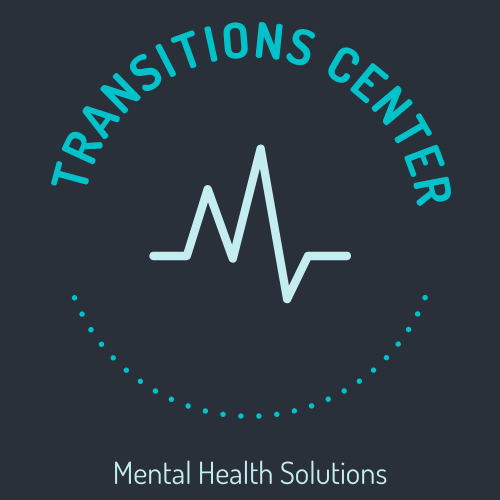A lot of people think that exercise is just for physical health – but what about mental health? A growing number of studies are showing that exercise can be a huge help in improving mental health, moods, and overall happiness. In this blog post, we will discuss the link between exercise and mental health, and share some tips on how to get started!
What Is The Important Link Between Exercise And Mental Health?
Science has been showing over and over that exercise and mental health are closely linked. There have been numerous studies on this topic, and many of them have found a significant positive association between physical activity levels and reduced risk for depression, anxiety disorders, schizophrenia, stress management difficulties, insomnia, and other mental health problems. In fact, some studies have found that exercise can be just as effective at treating depression and anxiety as medication.
So how does this work? Well, there are several theories about why physical activity is so beneficial for mental health. One possible explanation is that exercise triggers the release of chemicals in the body called endorphins, which helps to improve mood. Additionally, exercise has been shown to increase the number of brain cells in parts of the brain that are important for mood and emotion regulation.
Whatever the reason, it’s clear that there is a powerful link between exercise and mental health – so if you want to improve your mood or manage anxiety, depression, stress, or other mental health problems, regular exercise could be the key!
How Exercise Can Affect Mental Illness?
One of the main benefits of exercise for people with mental health disorders is that it helps to increase physical activity, which research has shown can have a significant positive impact on these disorders. Exercise can help with both drug-based and non-drug based forms of treatment. Because of this, many doctors are now prescribing regular exercise to patients as a way to help with their mental health problems.
Another big benefit of exercise for people with mental illness is that it helps to decrease stress and anxiety since one of the main symptoms associated with many mental disorders is high levels of stress and tension. Not only does exercise release “feel good” chemicals in the brain like endorphins, but it also helps people to feel more in control of their emotions – something that can be a big help for those struggling with anxiety, stress, and other mood disorders.
Furthermore, exercise has been shown to have a powerful impact on mental health by helping people to manage negative thoughts and feelings. For example, studies have shown that exercise can be just as effective at combating depression as medication and that it is an especially good way to help deal with anxiety and stress in the short-term. Additionally, research has found that regular physical activity can help to promote feelings of positivity and happiness by reducing levels of negative thinking. This makes it a powerful tool for managing symptoms of mental illness.
Finally, exercise can be an important factor in preventing mental health problems from developing in the first place. This is particularly true when it comes to anxiety and depression – studies have shown that regular physical activity reduces the risk of these disorders. Additionally, research has found that people who are physically active throughout their lives have a lower risk for dementia and other cognitive decline problems. So the earlier you start exercising, the better!
Tips For Starting An Exercise Routine If You Are Struggling With Mental Health Issues
If you are looking to start an exercise routine to improve your mental health, here are some tips and suggestions for getting started:
1. Talk To Your Doctor First – Before you start any exercise program as part of your mental health treatment, it’s a good idea to talk to your doctor first. Have them assess whether there are any underlying medical or physical issues that could make exercise difficult or dangerous for you.
2. Find An Exercise That You Enjoy – Not everyone enjoys the same type of exercise, so one important step to starting an exercise routine is finding a type of physical activity that you actually enjoy. For some people, this might be something simple like going on walks or taking the dog for a run. Others might prefer swimming, cycling, dancing, jogging, or another more active option. Whatever it is, make sure that it’s something that you actually enjoy, or else it will be difficult to stick with in the long run.
3. Set A Schedule And Stick To It – Once you’ve decided on an exercise activity that you like, it’s important to set a schedule and then stick to it! It can be helpful to pencil in your exercise sessions into your schedule, just like you would any other appointment or activity. You might be surprised by how much better you feel if you make exercise a regular part of your life – even taking it just one step at a time can go a long way toward improving your mental health and overall wellness.
These are just a few tips that can help you get started with an exercise routine if you are struggling with mental health issues. Don’t be afraid to start small – even a simple daily walk can go a long way toward improving your mood and overall wellness!
Though the research is still ongoing, it seems that there may be a strong correlation between exercise and mental health. Participating in regular physical activity can improve your mood, decrease stress levels, and help you to feel more confident and capable. If you’re looking for an easy way to boost your mental wellbeing, consider adding some form of physical activity into your routine. And if you’re struggling with mental health issues, don’t hesitate to reach out for help – there are many resources available to you. Thanks for reading!
About the Authors
Transitions Center for Natural Mental Health Treatments for a variety of physical and mental dependency issues and conditions. Substance use disorders are difficult to understand for many people. The physical and mental aspects of any substance disorder are complicated and unique to the individual suffering. The differences between physical and psychological dependency vary but have some similarities. Transitions Center for Natural Mental Health Treatments help the public know what to look for as a means of helping a loved one cope with the challenges of mental health disorders.
Happily brought to you with the assistance of Mary Jane’s CBD Dispensary, the newest cbd nutrition online. If you’re looking for a hemp product to help with your health or mental condition, Mary Jane’s CBD Dispensary is the perfect place. They offer customers an alternative to pharmaceutical drugs and want you to feel better without having to take harmful meds. Their team members are extremely passionate about what they do at MJD and hope that by creating this blog post, they can share our passion with others too. Get in touch if you would like more information on any of their products!

